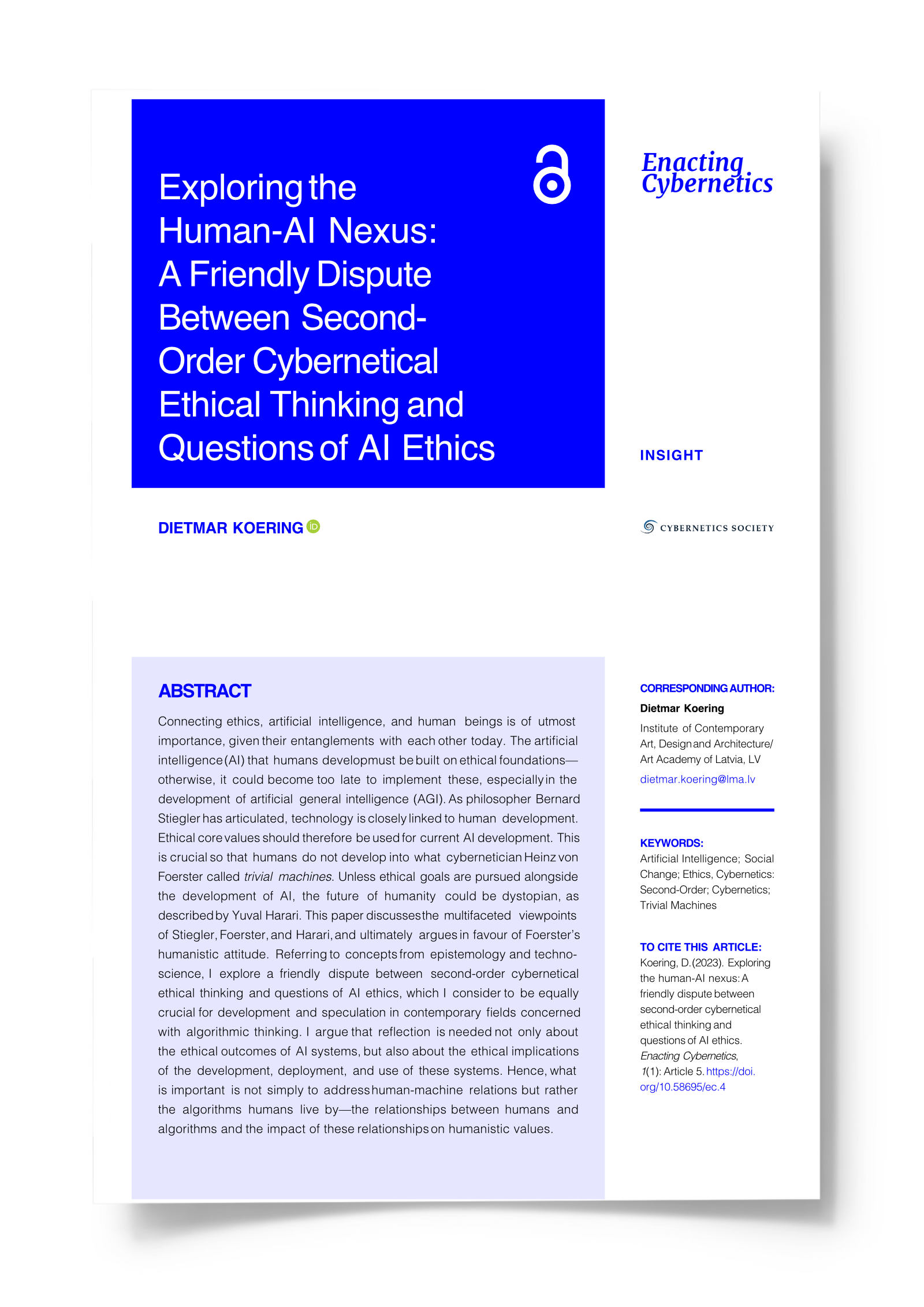Connecting ethics, artificial intelligence, and human beings is of utmost importance, given their entanglements with each other today. The artificial intelligence (AI) that humans develop must be built on ethical foundations—otherwise, it could become too late to implement these, especially in the development of artificial general intelligence (AGI). As philosopher Bernard Stiegler has articulated, technology is closely linked to human development. Ethical core values should therefore be used for current AI development. This is crucial so that humans do not develop into what cybernetician Heinz von Foerster called trivial machines. Unless ethical goals are pursued alongside the development of AI, the future of humanity could be dystopian, as described by Yuval Harari. This paper discusses the multifaceted viewpoints of Stiegler, Foerster, and Harari, and ultimately argues in favour of Foerster’s humanistic attitude. Referring to concepts from epistemology and techno-science, I explore a friendly dispute between second-order cybernetical ethical thinking and questions of AI ethics, which I consider to be equally crucial for development and speculation in contemporary fields concerned with algorithmic thinking. I argue that reflection is needed not only about the ethical outcomes of AI systems, but also about the ethical implications of the development, deployment, and use of these systems. Hence, what is important is not simply to address human-machine relations but rather the algorithms humans live by—the relationships between humans and algorithms and the impact of these relationships on humanistic values.



